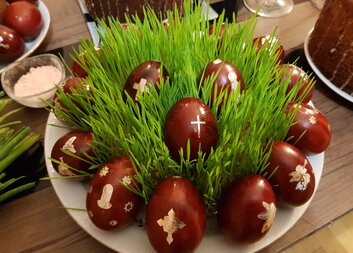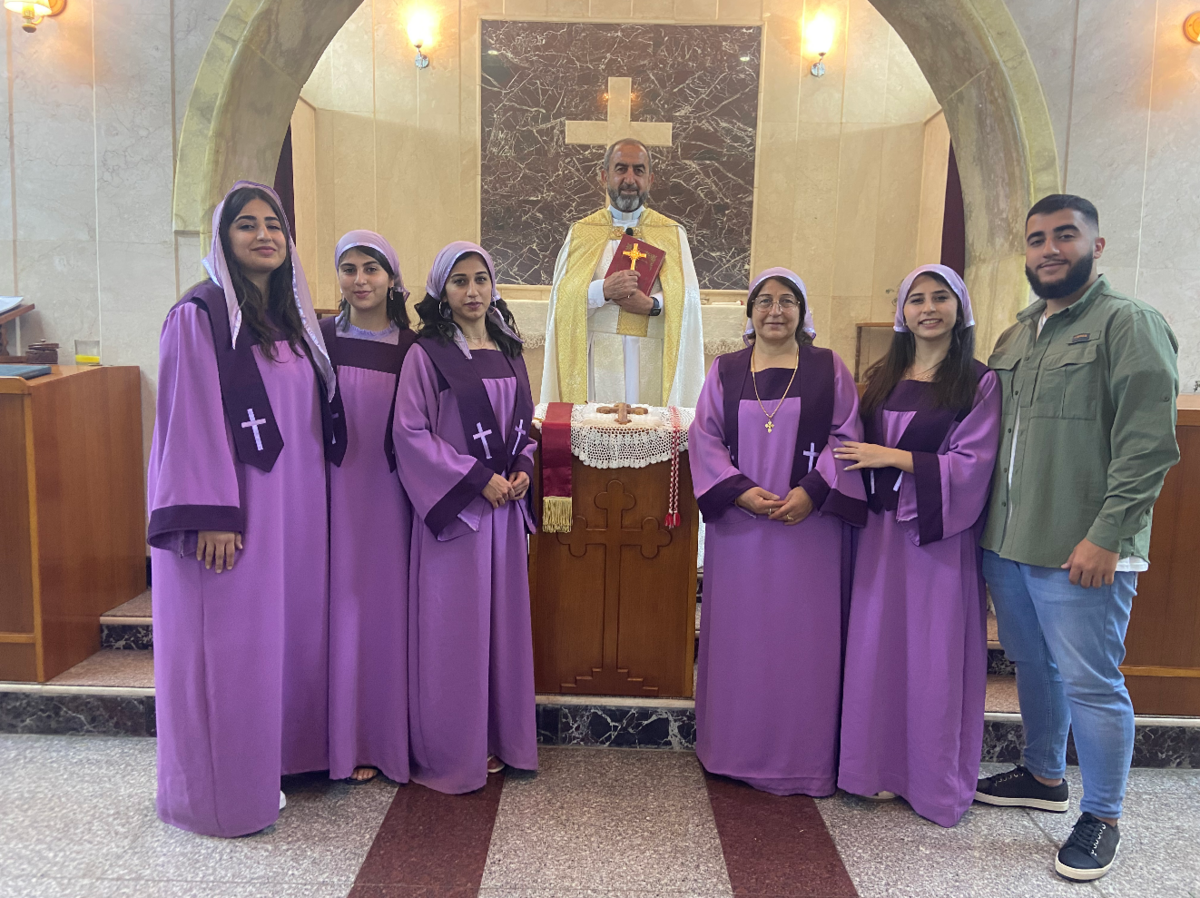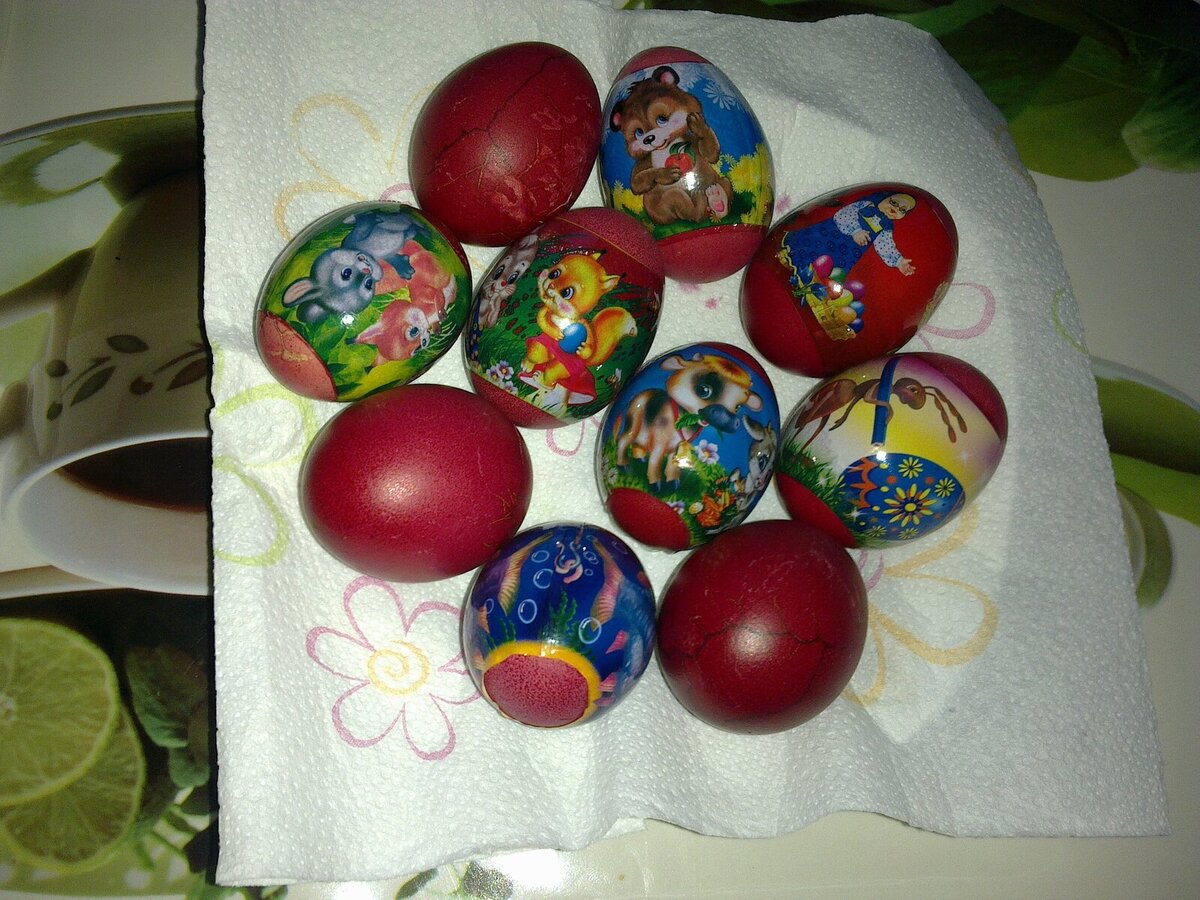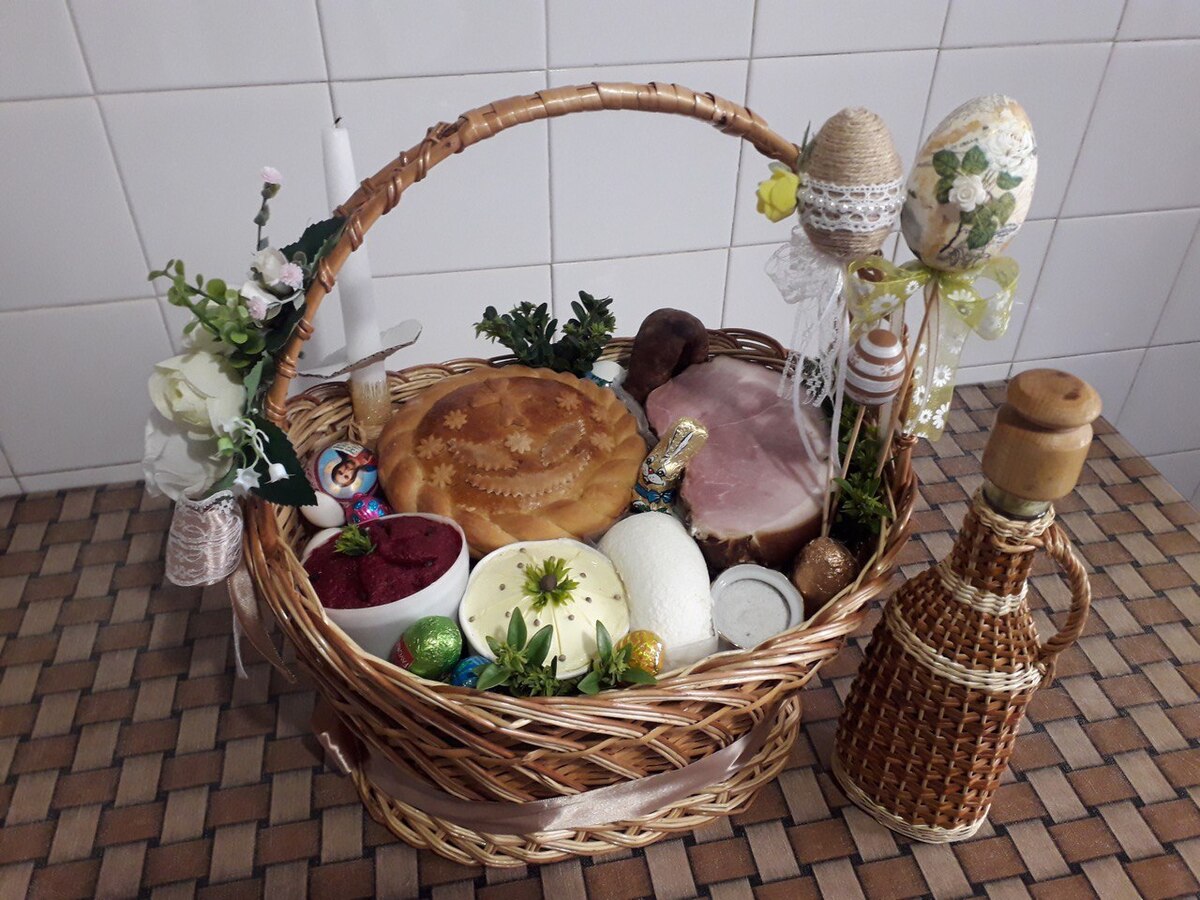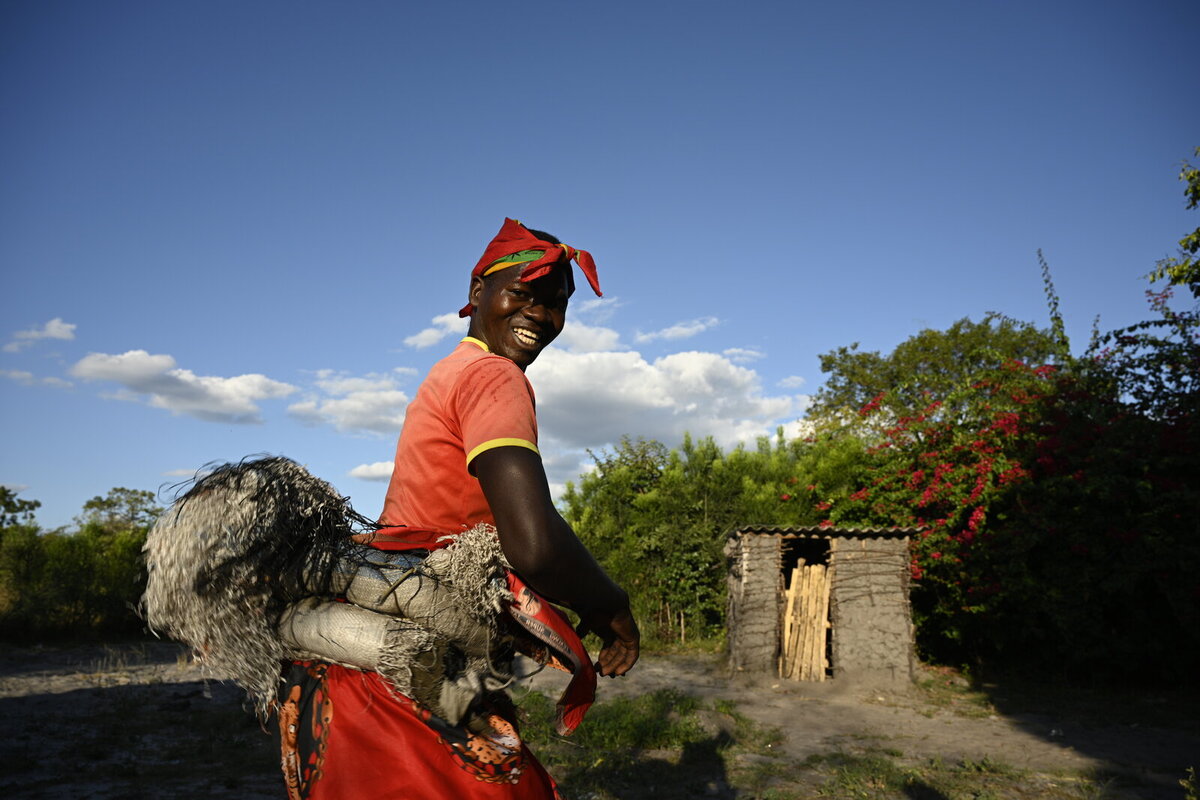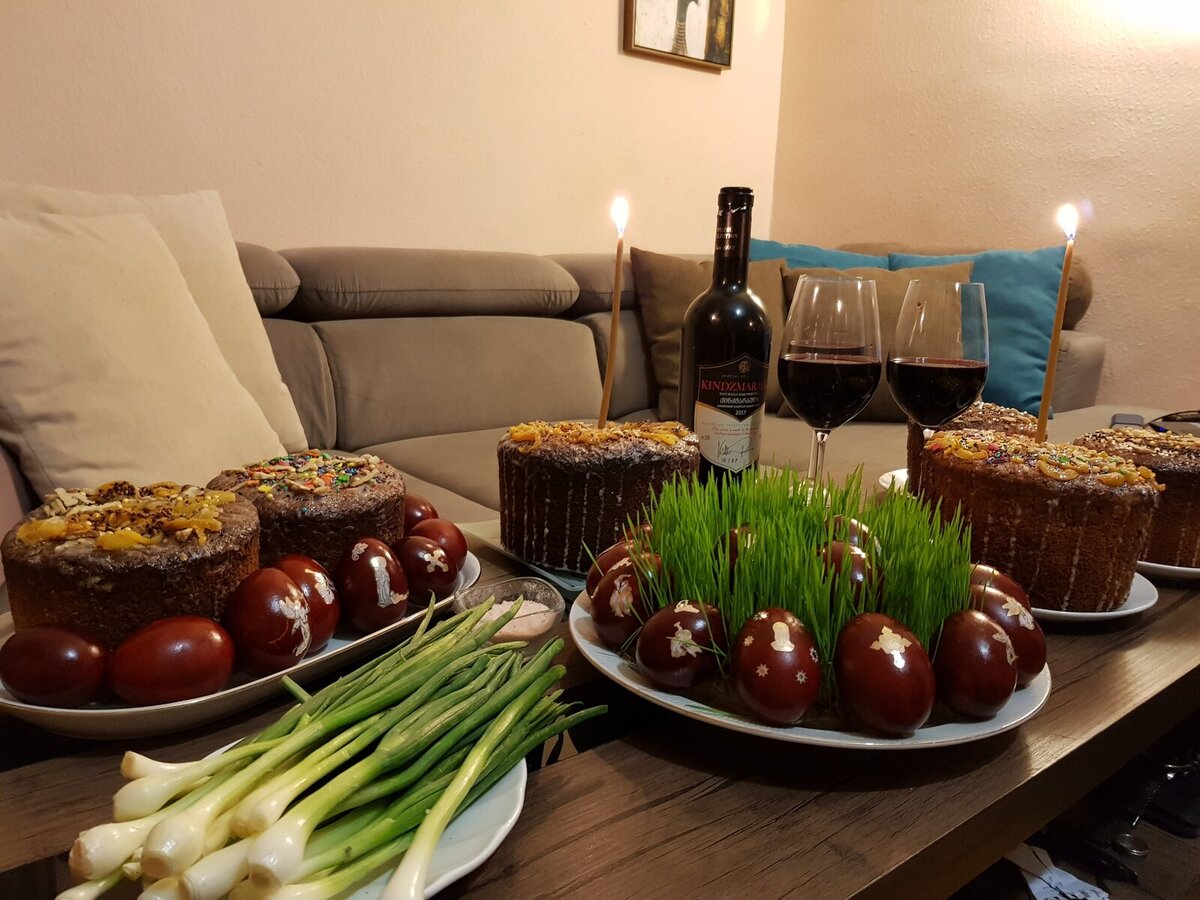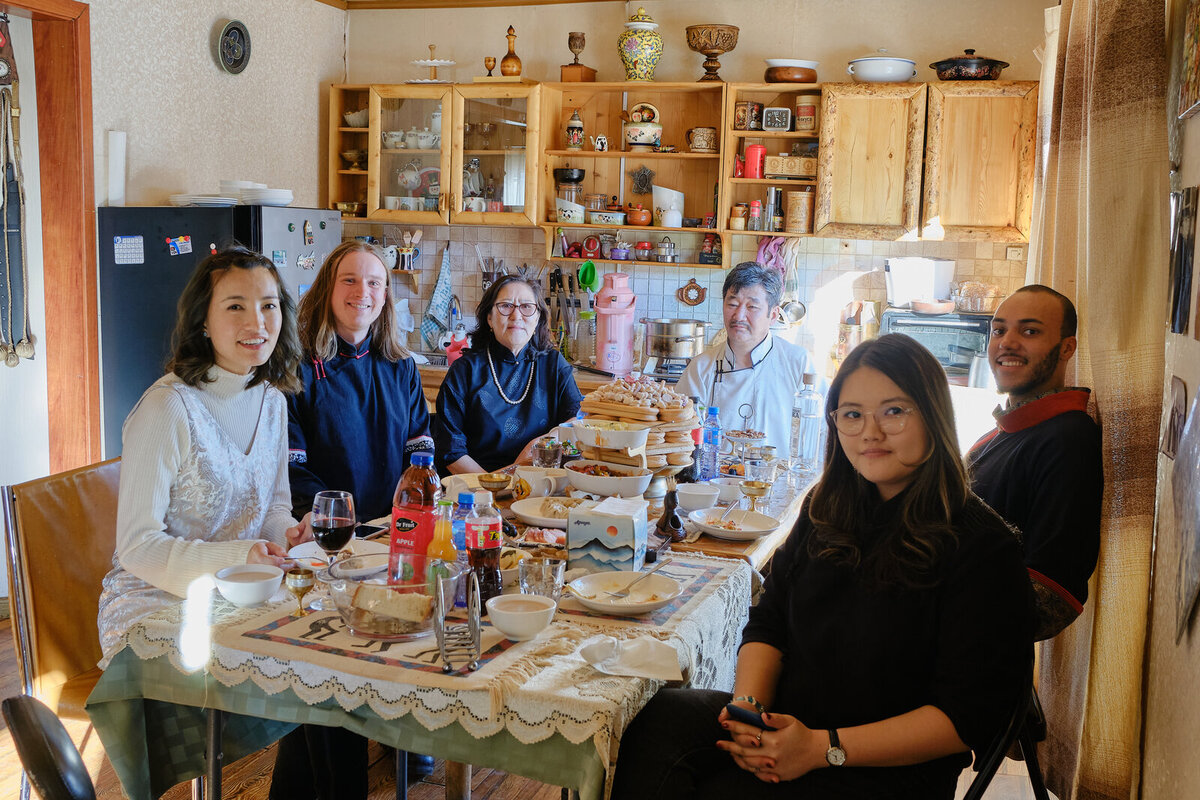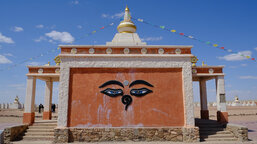Did you know that Easter is celebrated in Iraq? And that there's an egg fight in Moldova on Easter Sunday? Or that in Zambia they eat eggplant during this holiday? Our colleagues from different Caritas Czech Republic’s offices across the world share how Easter is celebrated in their countries. For example, by feasting in the cemetery.
Iraq - a delicacy from boiled sheep heads
Although Iraq is a predominantly Muslim country, there is also a Christian minority that celebrates Easter. On Good Friday, Iraqi Christians pray in church late into the night, and the following Saturday afternoon there is a church service, followed by another night service, and with it the singing of songs and the traditional candlelight march.
In Iraq they too dye eggs at Easter, especially in red. "Today people dye eggs in other colours, but it should be red because it symbolises the blood of Jesus Christ," says Pastor Esha Dawood Philips from Erbil, Iraq.
Easter in Iraq also comes with traditional dishes, but these vary from region to region. In some places, they cook 'Dkhwa', a dish of dried yoghurt, beef and wheat. In other areas, locals prepare 'Pacha', a traditional Iraqi dish made from boiled cow or sheep heads, legs and stomachs. Sweets are also a must. Iraqis are fond of desserts such as Kuleicha and Kada. The sweet date cakes called Kuleicha are prepared by locals of all religions and ethnicities. Kada is originally an Assyrian recipe and is prepared in Iraq on the 25th day of Lent. A small sign of a cross made of grape sticks is placed inside the dessert. The Kada is then cut into several pieces according to the number of family members. Whoever finds the cross in their piece receives a gift from the rest of the family.
On the morning of Easter, Christians gather for Mass, then visit the families of relatives and meet at the home of a parent or older sibling for lunch together. Muslims have the same tradition for Eid al-Fitr, the Festival of breaking the fast, one of the main holidays celebrated by Muslims, which marks the end of the holy month of Ramadan, the month of fasting. This year, Ramadan lasts from 11th of March to 9th April, and so falls at the same time as Easter. The Eid al-Fitr follows from 10th to 12th of April.
Moldova - an egg battle
When you hear the greeting “Hristos a inviat” in Moldova, you will know it's Easter. This greeting translates to “Jesus Christ is resurrected” and Moldovans greet each other in this way at Easter. You should respond to the greeting with “Adevarat a inviat”, meaning “Indeed resurrected”.
Moldova celebrates an Orthodox Easter and this year it will be on Sunday, May 5th. As in other countries, eggs are dyed in Moldova for Easter in the traditional red colour. Moldovans bake Easter desserts and Easter bread which must be sprinkled with holy water in church. The main dished served at Easter in Moldova is lamb.
On Easter morning, Moldovans wash their faces with water from a bowl to which they add one white egg, one red egg and a coin. It is said that if you wash your face with this water, you will be healthy and beautiful - just like an Easter egg. The red egg symbolises prosperity, the white egg purity and the coin wealth in the coming year.
At the Easter dinner in Moldova, there is an egg battle, where each family member chooses a red egg and hits the egg of their neighbour at the table. The egg that withstands all the fights without any cracks brings good luck and power to the person to whom it belongs.
Ukraine - Easter at war
For the third year in a row, Ukraine will commemorate one of the most important Christian holidays in a time of war. Although much has changed in the lives of Ukrainians in that time, the traditions of Easter celebrations remain the same.
As in Moldova, people in Ukraine celebrate Orthodox Easter. Preparations begin a week in advance, in a week called Holy Week or White Week. Thursday of this week is called Clean Thursday and is traditionally reserved for cleaning the house and decorating icons with festive towels. On the same day, families bathe before sunrise under running water, which is said to wash away all sins and diseases.
This is followed by Good Friday, during which services in church are held. Saturday is considered a day of rest for Ukrainian Christians, and in the evening they gather for a night service, during which they bring Easter baskets to be blessed. The basket also contains a so-called paska, a traditional Easter pastry, for blessing.
Easter Sunday is then celebrated with the whole family around a large table.
Zambia - roast lamb with eggplant
In Zambia, 95 percent of the country's population is Christian. Easter is therefore an important holiday for the locals. It usually lasts for four days and is celebrated from Friday to Monday. During Easter, Zambians enjoy the traditional dish of nshima, which is a porridge made from finely ground corn meal, with roast lamb and eggplant.
Palm Sunday usually opens the celebrations on the final Sunday of Lent with many Roman Catholics and other churches carrying palm leaves that symbolise peace and victory. This is coupled with a lot of singing, dancing and goes on from Palm Sunday until Easter Sunday.
Georgia - feasting in the cemetery
Orthodox Easter is also celebrated in Georgia. As in Ukraine, you can find traditional pastries called paska. Georgians also enjoy the dish Chakapuli made from sheep meat during Easter.
Similarly to Moldova, in Georgia you will also encounter the typical Easter greeting. Georgians also engage in egg battles. They tap their neighbours' eggs with red painted eggs and compete to see which egg can withstand the most taps.
One of the significant traditions for Georgians during the Easter week is visiting the graveyards of their relatives, and bringing red eggs and paska to the ancestors’ graves. They light up candles, drink wine and pour it on the grave. Easter symbolises eternal life and as such, whole families celebrate it together and share this happiness with those members of their family who are not with them physically but do hope to meet them in the future, in the other life.
Mongolia - celebrating the arrival of spring
With only one percent of the population in Mongolia being Christian, Easter is not really celebrated in Mongolia and is not a public holiday. In spring, however, Mongolians mark the arrival of the Lunar New Year. They celebrate having overcome the long and harsh Mongolian winter. This holiday also has a deeper connection to the dominant religion in Mongolia, Buddhism. Since the majority of the nation identify themselves as Buddhist, and this holiday was banned during the Soviet era, people now celebrate it widely in Mongolia.
Also the Kazakhs, a Mongolian ethnic minority, celebrate their own version of the Lunar New Year, called Nowriz, on the 20th of March. The Muslim Kazakhs celebrate Ramadan at the same time, fasting and praying for the entire month.
Are you interested in what is happening in the countries where Caritas Czech Republic supports people in need? Sign up for our regular newsletter.

